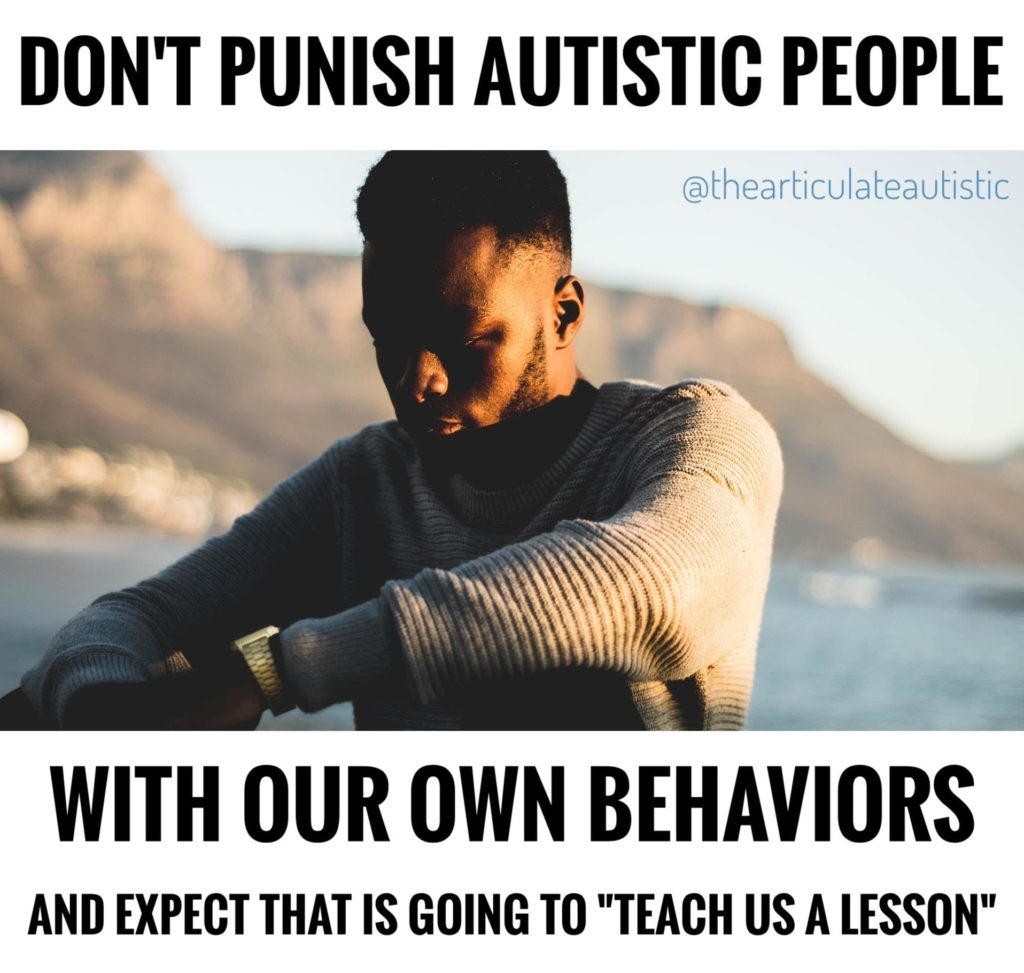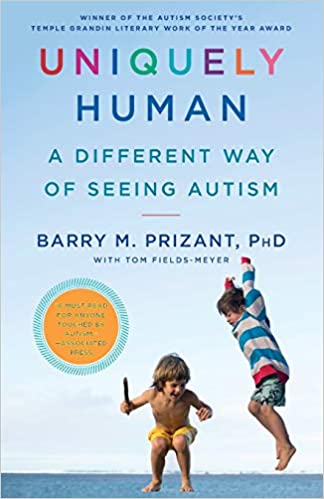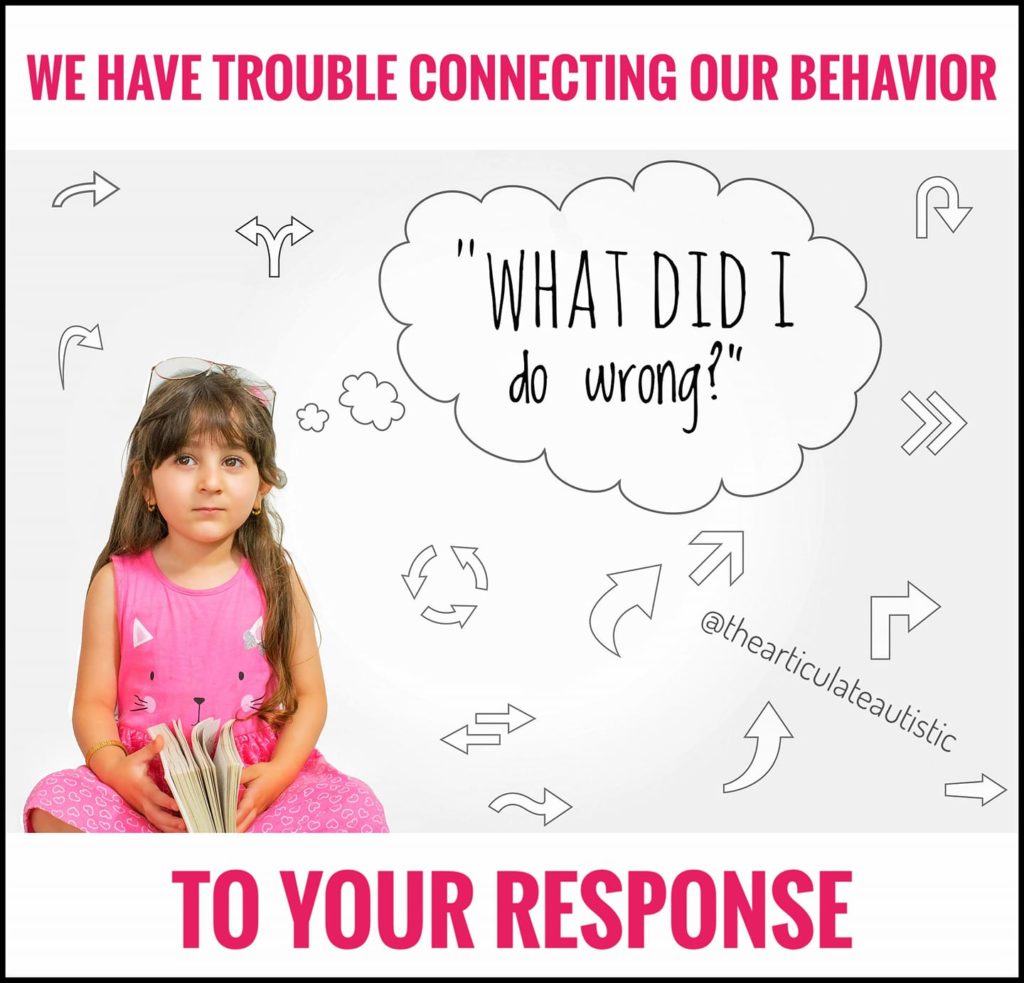Don’t Punish Autistic People With Our Own Behaviors and Expect That Will “Teach Us a Lesson”

When I say don’t punish autistic people with our own behaviors, I mean don’t attempt to “mirror” our tone, physical stance, or facial expressions (or lack thereof) in an attempt to teach us how WE’RE being.
It doesn’t translate. It just comes across as cruel bullying and makes us distrust you.
For example, if an autistic person is speaking in a volume you think is too loud, don’t start shouting at the autistic person to prove a point.
We don’t know we are shouting at you. This means that your behavior (shouting) is sudden, strange, unpredictable, and does not match the current topic or situation at all.
(Article continues below.)
The best way to improve communication with your autistic loved one is to understand how your autistic loved one’s mind works! Intentions, motivations, and personal expressions (facial expressions or lack thereof, body language, etc.), are often quite different in autistic people than they are in neurotypical people.
Experience a better understanding of your autistic loved one by reading books about life from an autistic perspective as well as stories that feature autistic characters. You’ll have so many “Ah ha!” moments and start seeing your autistic loved one in a different light (and you’ll have a better understanding of their behaviors, which you may have been misinterpreting up until now).
Books I recommend for a better understanding of your autistic loved one:
(This is what made me think almost all non-autistic people were incredibly unstable for decades before I finally stumbled upon the truth.)
If an autistic person has what appears to be an angry or mean facial expression but is talking about a benign subject, don’t “mimic” the expression.
We don’t know you’re mimicking us, we don’t even know what our faces are doing. All we know is YOU suddenly look angry, and that’s scary.
Also, if an autistic person tells you something like they can’t handle being touched if they don’t know the touch is coming (i.e., from behind), don’t pretend to jump out of your skin when they touch you just to “show them what it’s like” or to punish something they absolutely cannot help.
The same goes with anything an autistic person is either unaware of or is just part of their neurology.
It’s not teaching anything other than to distrust and avoid.
If you experience behavior that concerns you, explain what you’re seeing in plain language and ask for the intention.
For example, “I see that you’re frowning and your mouth is turned down. When I make that facial expression, it usually means I’m angry. Are you angry right now?”
I cannot stress the importance of investigation enough. Don’t assume anything and certainly don’t mimic the behavior back because, to the autistic person, it looks like YOU are the one starting the conflict out of absolutely nowhere, and that makes the world a terrifying place!
Follow me on Instagram.
Want downloadable, PDF-format copies of these blog posts to print and use with your loved ones or small class? Click here to become a Patreon supporter!







